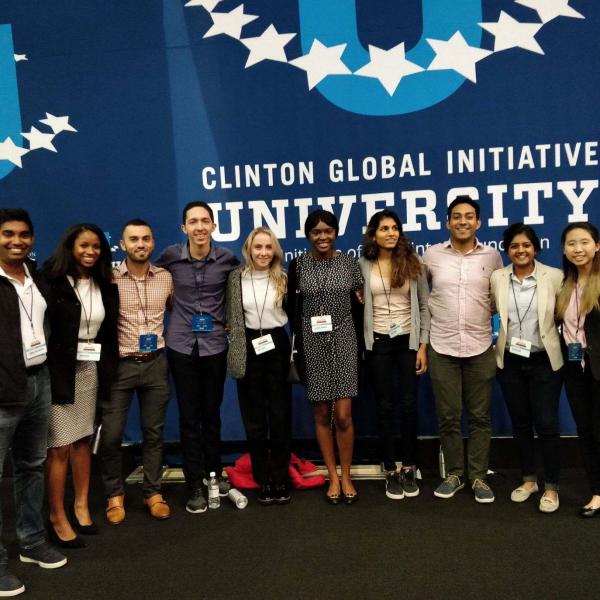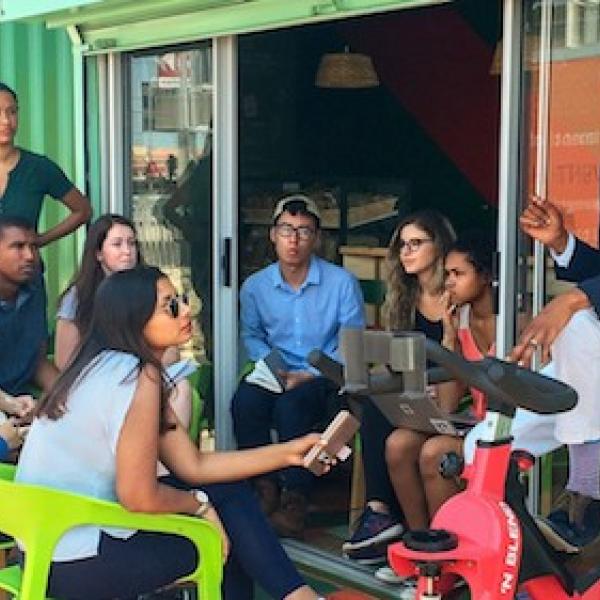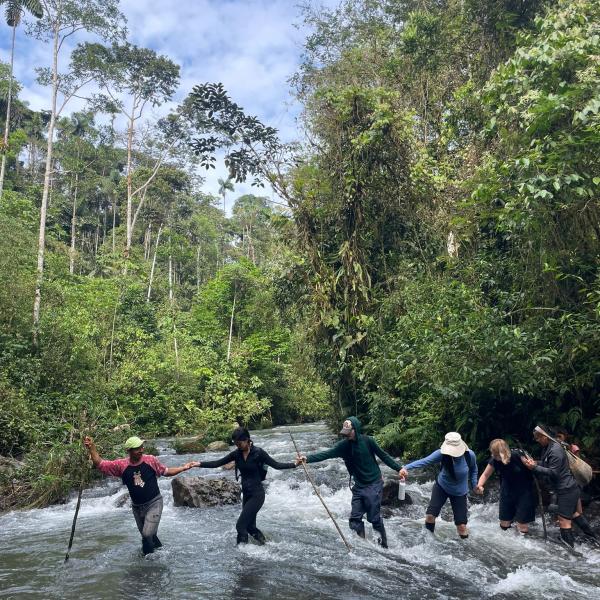Overview
See below and "Requirements" tab for questions of citizenship and residency
Courses in computer science, data science, and artificial intelligence may not have availability
Business classes are restricted to students in College of Business
Fall 26 second round rolling until deadline or full.
Learn more about the application process and deadlines for each round of applications.
Yonsei University's Exchange Program offers opportunities to students who plan to study for a year or a semester in Korea's top university located in the heart of Seoul, the dynamic capital city of Korea.
What is unique about this program?
Yonsei University is a large private research university located in Seoul, South Korea. Founded in 1885 by Christian missionaries, it is one of the oldest universities in South Korea and is widely regarded as the top private school in the country. It is one of the "SKY" universities, a historical Korean acronym used to refer to Seoul National University, Korea University, and Yonsei University, which are the three most prestigious universities in the country. Yonsei has played a unique role among Korean universities as the gateway for foreign scholars and students interested in Korean studies, language, and culture. The student body consists of over 38,000 students: approximately 27,000 undergraduate students, 12,000 graduate students, 4,500 faculty members, 6,750 staff, and over 250,000 alumni.
In addition to gaining academic excellence, international students are also exposed to a beautiful and culturally rich environment. Yonsei University is particularly fortunate to be situated in a spacious, quiet, and well-wooded environment near a mountain yet right in the center of Seoul's metropolitan area.
Yonsei offers a free first semester online Korean Language class.
Note: Only students in Cornell's College of Business (Dyson, Hotel) can take business courses with a "BIZ" prefix. Other business-related courses may exist in other units at Yonsei.
What is unique about Seoul?
Packed with people, it’s no wonder Seoul is the capital and largest city in South Korea. A vibrant business and financial hub, Seoul also brims with culture, with more than 100 museums, numerous religious monuments, parks, markets, festivals, sports teams, and the Gyeongbok and Changdeok palaces. The mighty Han River runs through the city, and rugged mountains loom in the distance.
Academic Calendar
Yonsei functions on the calendar year:
- Semester 1: mid-February to mid/late June
- Semester 2: late August to mid/late December
Special Considerations for South Korean citizens
* Note: Students are not eligible to study abroad in their home country. If you have questions whether South Korea should count as your "home country" for the purposes of study abroad, please discuss this with Education Abroad-Global Learning. "Home Country" is not the same as citizenship which is a concern for the South Korean government, see below for details.
Students interested in studying in South Korea should determine whether or not they are considered Korean citizens by discussing their situation with their families and their local Korean embassy or consulate. If you have a parent who was a Korean citizen at the time of your birth, even if they did not register your birth in South Korea, you are a citizen even if your parent(s) subsequently renounced their citizenship. If you are considered a Korean citizen, even if you do not have a passport, the consulate will refuse to issue you a student visa and require you to enter Korea with a Korean passport or renounce your citizenship which takes time.
Male students who are Korean citizens and stay in Korea for longer than 90 days may be subject to military draft notices during their semester abroad. Furthermore, male students who do not serve in the military may find themselves unable to visit Korea in the future, as they could be subject to detainment and forced conscription.
Special Considerations for citizens of non-OECD countries
The visa process for South Korea depends on your country of citizenship. Students who are NOT citizens of a country belonging to the Organization for Economic Cooperation and Development (OECD) will need to provide additional documentation to Yonsei University before they will issue the Certificate of Admission necessary to obtain the visa. Please consult the Education Abroad advisor listed on this page and Yonsei University if you have any questions about this process. The Registrar provides information on securing an Apostille for your transcript, a mutli-step process that can take 2-3 weeks.
Things to consider before applying
- Review the information on the Education Abroad Office’s Get Started page for important considerations on academics and finances, and a guide to next steps
- Find answers on the Education Abroad FAQ and resource pages for Cornell study abroad policy, health, and safety updates
- Still have questions? Visit the Get Advice page and learn how to connect with an Education Abroad Advisors
- Want to keep up to date with Cornellians Abroad? Follow Education Abroad on social media, @cornelliansabroad, @CornellEducationAbroad
How do I apply?
Applying to study abroad is a two-step process. For more information, visit Apply for Semester and Year on the Education Abroad website.
For Cornell approval and nomination, click on the "Apply" button on this webpage. Applications are reviewed by Education Abroad. See timeline. Students who secure a space will be invited to commit. Once committed, the Education Abroad Office will nominate you to the exchange partner.
Once nominated by Cornell, complete the external application for exchange students provided by the partner. Schools typically admit the students nominated by exchange partners, but you must complete this process for them to review your application and offer you a place. The timeline for nominations varies greatly by program; you will hear from your Education Abroad Advisor or the program itself when it is time to apply externally.






